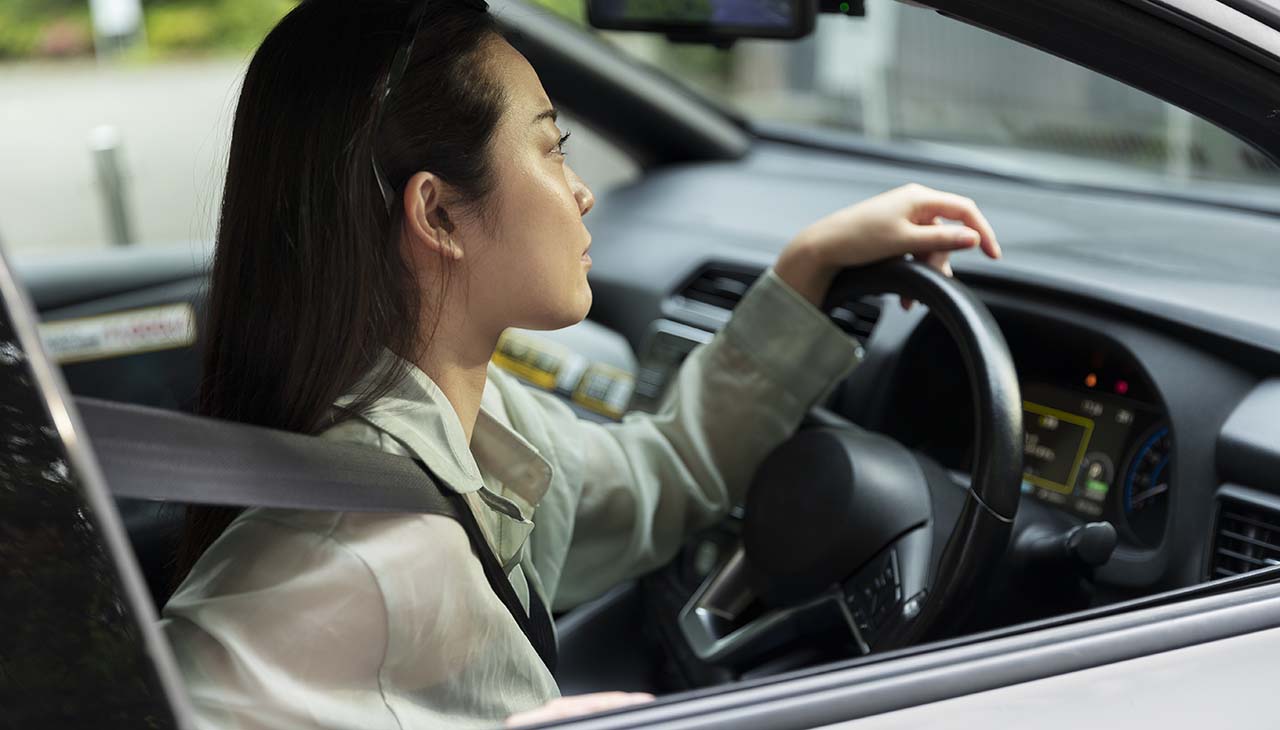The Rise of Connected Cars and What It Means for Drivers
5 min read
Connected cars represent a significant evolution in automotive technology, embodying the fusion of vehicular design with the latest in digital innovation. This integration not only uplifts the driving experience but also profoundly impacts safety, efficiency, and environmental sustainability. Through advanced features such as real-time traffic updates, autonomous driving capabilities, and enhanced diagnostic systems, connected cars are setting the stage for a future where vehicles are not merely modes of transportation but sophisticated mobile devices that facilitate an interconnected lifestyle.
Connected Car Technology
Connected car technology integrates the use of the Internet of Things (IoT) to allow vehicles to communicate with each other and with infrastructure, enhancing the way we engage with our cars and the road. These vehicles leverage wireless networks to gather and transmit data, offering features like vehicle-to-vehicle communication, automated emergency braking, and remote diagnostics. For drivers, the benefits are manifold:
- Safety Features: Connected cars contribute to road safety by employing advanced driver-assistance systems (ADAS) such as blind-spot detection, lane-keeping assistance, and predictive collision warnings. These features significantly reduce the likelihood of accidents, ensuring a safer driving environment.
- Convenience: Connected cars simplify life for drivers through functionalities like remote start, real-time navigation updates, and parking assistance. The ability to receive traffic alerts and alternate route suggestions helps drivers avoid congestions, saving time and fuel.
- Entertainment and Connectivity: In-car entertainment and connectivity options have seen a massive upgrade with connected car technology. Streaming music, audiobooks, and podcasts directly through the vehicle’s interface, alongside seamless smartphone integration, ensure an enjoyable and connected experience even on the move.
These advancements underline the shift towards more connected, autonomous, and user-friendly vehicles, promising a future where driving is not just about getting from point A to B, but about experiencing a safer, more efficient, and enjoyable journey.
Data and Privacy Concerns
While the advantages of connected car technologies are substantial, they also give rise to significant data privacy concerns. Connected vehicles accumulate a vast amount of data related to the driver’s personal habits, location history, and even health metrics through wearables integration. This information is invaluable to car manufacturers and third-party vendors for customizing user experiences and developing new services. However, the collection, storage, and sharing of this data pose considerable privacy risks.
- Privacy Implications: The comprehensive data collected can potentially be misused if it falls into the wrong hands, leading to privacy invasions and identity theft. Additionally, there is the issue of consent—many drivers may not fully understand what data is being collected or how it is being used.
- Corporate Responsibility: Recognizing these concerns, automotive companies are implementing stringent data protection measures. This includes encrypting data to safeguard against unauthorized access, anonymizing datasets to protect driver privacy, and providing drivers with clear, accessible information about data practices. Furthermore, companies are adhering to regulatory standards such as the General Data Protection Regulation (GDPR) in the European Union, which mandates rigorous data protection and privacy requirements.
In essence, as the connected car industry evolves, ensuring the privacy and security of driver data is paramount. Automotive companies must balance the benefits of connected car technology with the ethical considerations and privacy expectations of their customers, fostering an environment of trust and transparency.
Impact on Driving Experience
The transformation of the traditional driving experience through connected car technology is profound, transitioning from a one-size-fits-all approach to a highly personalized and customizable journey. This evolution is primarily facilitated by the vehicle’s ability to learn from and adapt to the driver’s habits and preferences.
Personalization and Customization Options
- Driver Profiles: Modern connected cars allow for the creation of personalized driver profiles, tailoring the vehicle’s settings to match individual preferences. This includes adjusting seat positions, climate control settings, and even mirror angles automatically based on the driver’s profile.
- Smart Route Planning: Utilizing real-time traffic data and historical commute patterns, connected cars offer smart route planning to optimize travel time, enhance fuel efficiency, and reduce wear and tear on the vehicle. These systems can also learn preferred routes and suggest alternatives based on current traffic conditions.
- Adaptive Entertainment Systems: In-car entertainment systems have become increasingly sophisticated, offering personalized content recommendations based on the driver’s and passengers’ preferences. From curated playlists to podcast suggestions, the drive becomes an extension of the user’s digital lifestyle.
- Voice-Activated Controls: Voice recognition technology enables drivers to control various aspects of the vehicle, including navigation, entertainment, and even smartphone integration, without taking their hands off the wheel. This feature not only adds to the convenience but also significantly enhances safety by reducing distractions.
- Predictive Maintenance: By analyzing vehicle data, connected cars can predict when parts are likely to need maintenance or replacement, notifying the driver ahead of time. This proactive approach can prevent breakdowns, save money on repairs, and extend the vehicle’s lifespan.
These advancements signify a shift towards a more interactive, intuitive, and enjoyable driving experience, wherein the vehicle becomes a companion that understands the driver’s individual needs and preferences. This level of personalization and customization was unimaginable in the past, illustrating just how far connected car technology has come in transforming the automotive landscape.
Integration with Smart Cities
Connected cars stand at the forefront of the integration with smart city infrastructure, spearheading a new era of urban mobility characterized by efficiency, safety, and sustainability. The symbiosis between connected vehicles and smart cities is built on the exchange of real-time data, enabling unprecedented levels of traffic management and environmental stewardship.
Interactivity with Smart City Infrastructure
- Traffic Flow Optimization: Connected cars contribute to the optimization of traffic flow by sharing real-time location and speed data with city traffic management systems. This data, when aggregated, allows for the dynamic adjustment of traffic signal timings and the implementation of smart rerouting strategies to alleviate congestion, thereby reducing idle times and lowering emissions.
- Enhanced Safety Measures: Through interaction with smart city infrastructure, connected cars can receive alerts about hazardous road conditions, accidents ahead, or emergency vehicle movements, allowing for timely adjustments to driving behavior or route. This not only enhances the safety of the driver and passengers but also contributes to overall road safety.
- Eco-Friendly Routing: By leveraging data on traffic conditions, construction activities, and even air quality, connected vehicles can suggest eco-friendly routes that minimize driving distances and avoid congested areas. This helps in reducing fuel consumption and lowering the carbon footprint of each journey.
Sustainability Implications
- Reduced Carbon Emissions: Optimal routing and decreased congestion lead to shorter travel times and less idling, directly contributing to a reduction in carbon emissions. This is a key benefit in the context of smart cities, where environmental sustainability is a major goal.
- Electric Vehicle (EV) Integration: Connected cars, particularly electric vehicles, benefit from integration with smart city infrastructure by receiving real-time information on the location and availability of charging stations. This not only eases the use of EVs but also supports the city’s goals of promoting cleaner modes of transportation.
- Data-Driven Urban Planning: The wealth of data generated by connected cars offers invaluable insights for urban planners. Understanding traffic patterns, peak usage times, and even the popularity of certain routes can inform future infrastructure projects, leading to more efficient and sustainable urban environments.
In conclusion, the integration of connected cars with smart city infrastructure presents tangible benefits for traffic management and sustainability efforts. By harnessing the power of real-time data exchange, cities can become more navigable, safer, and greener, ultimately enhancing the quality of urban life.




